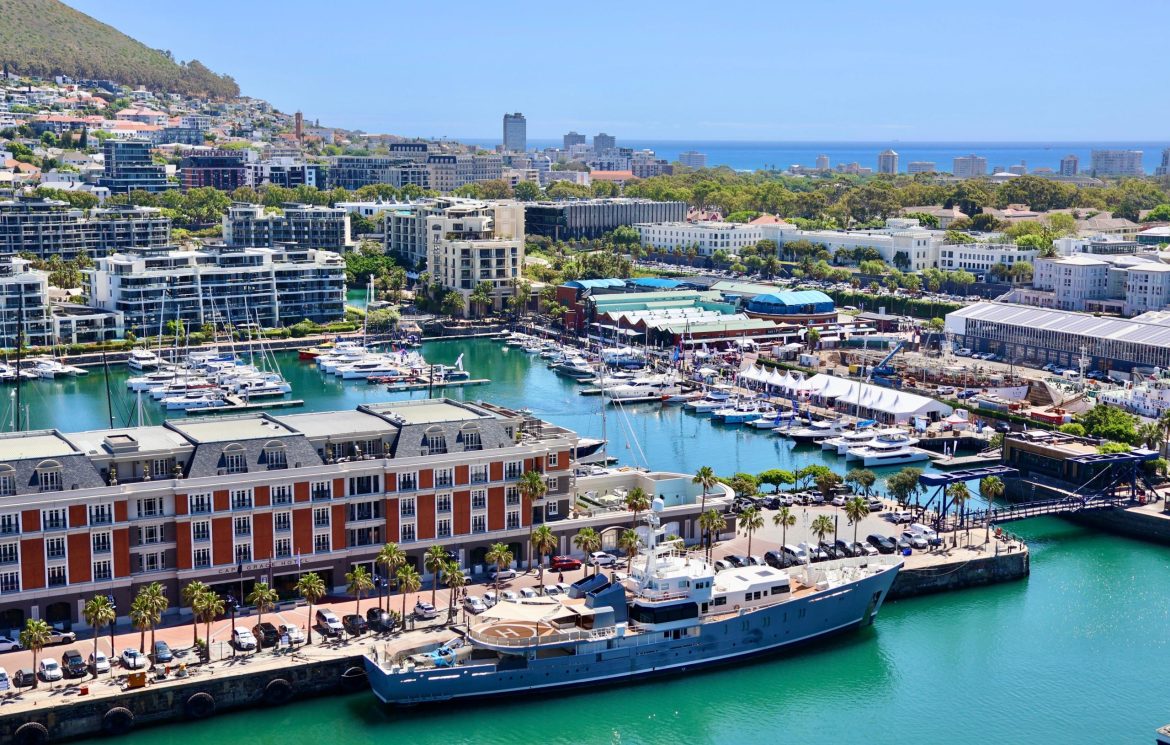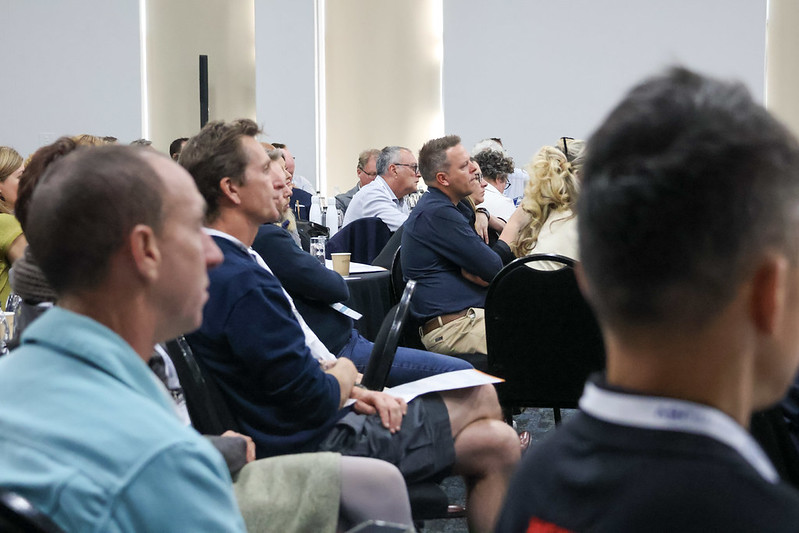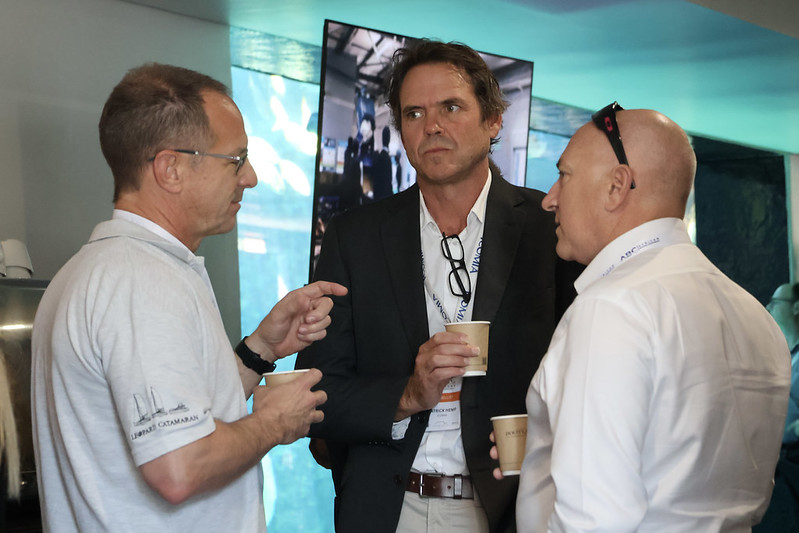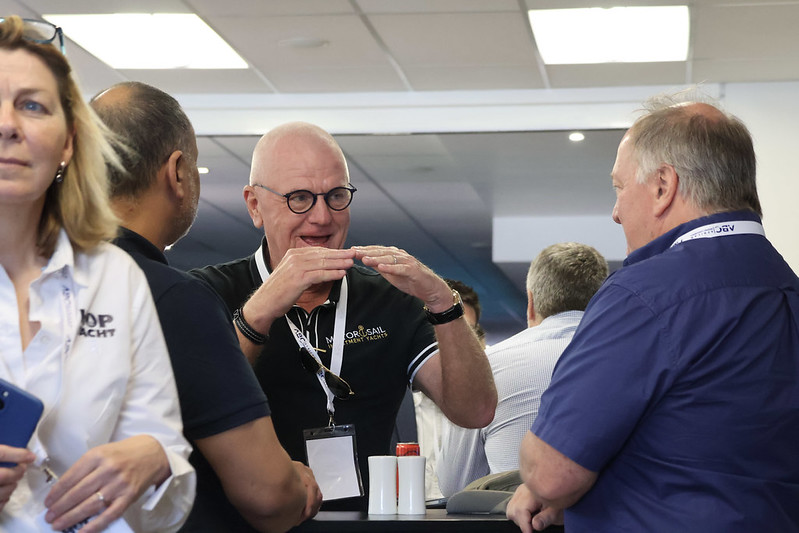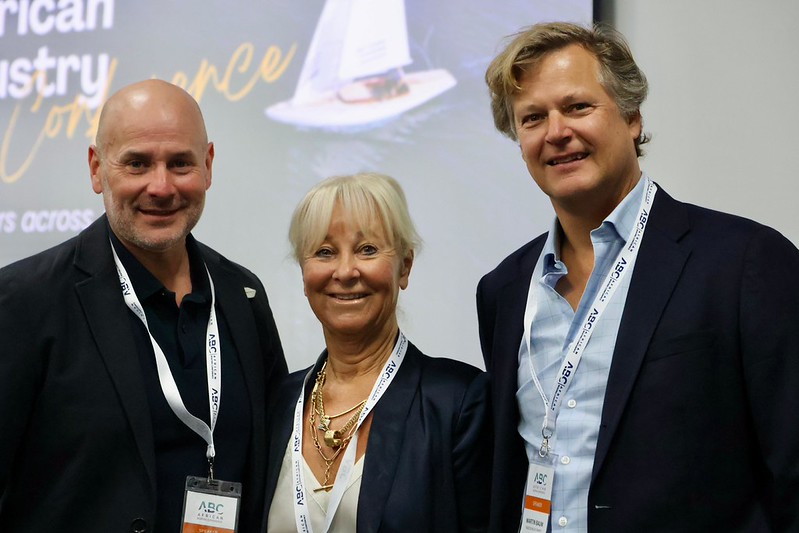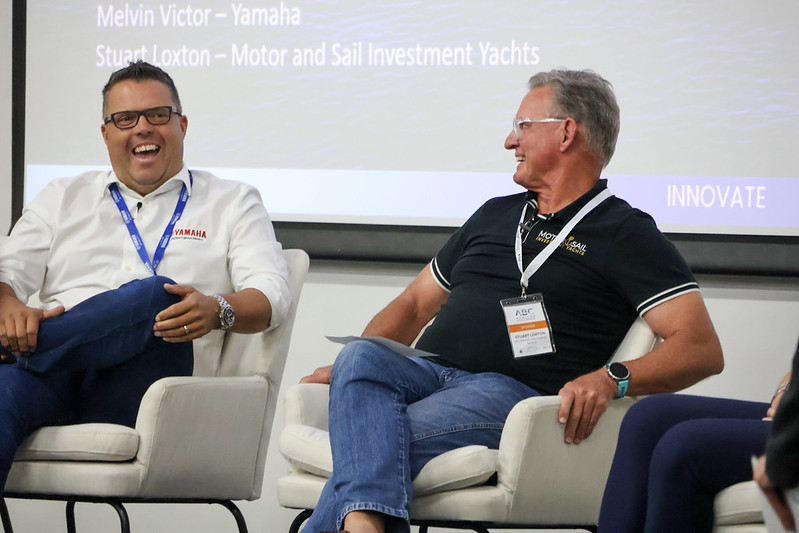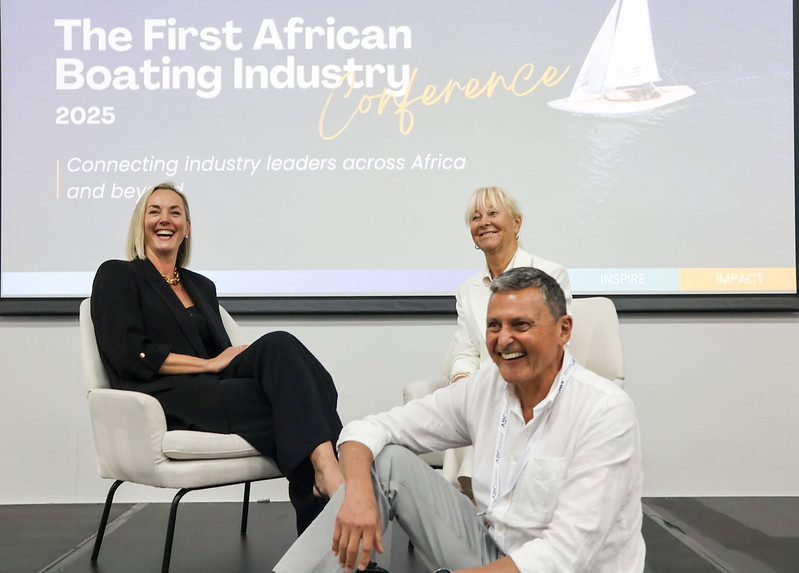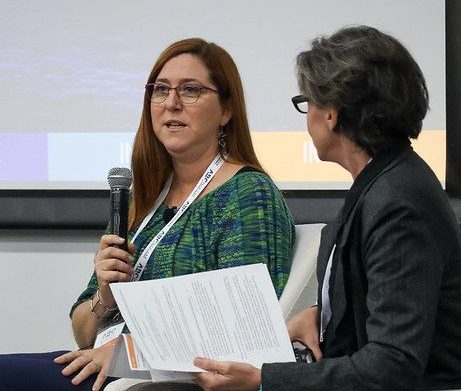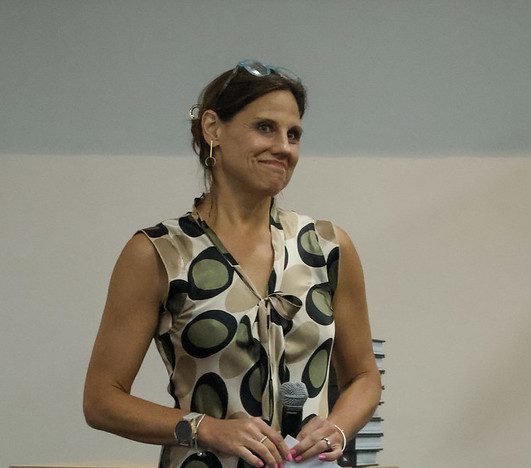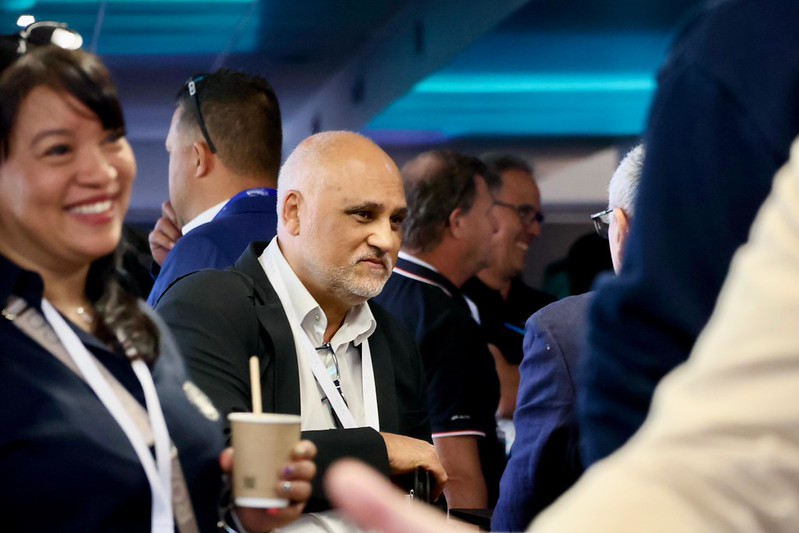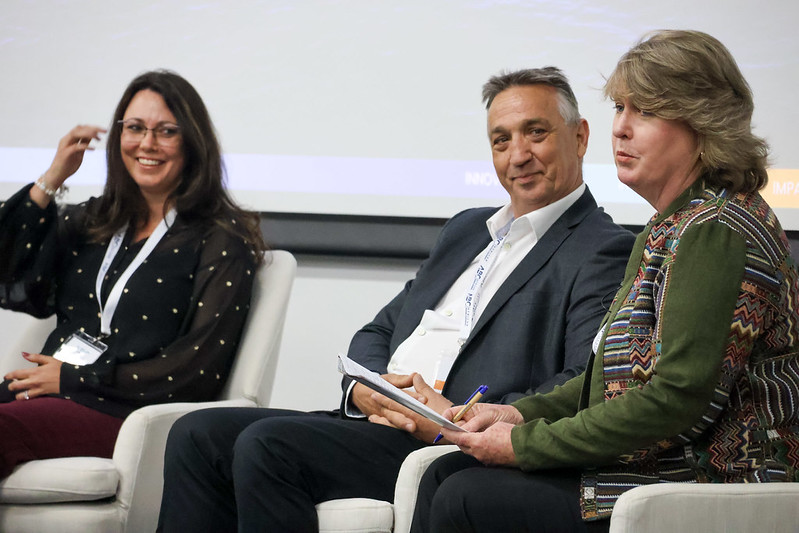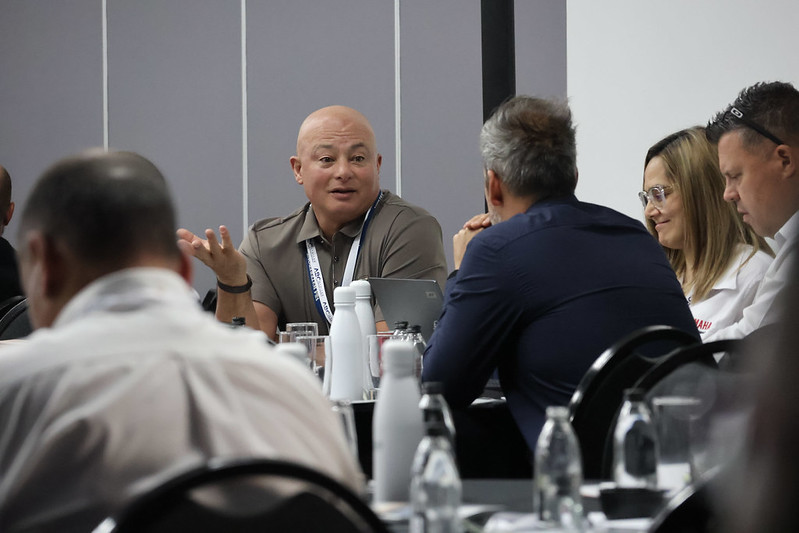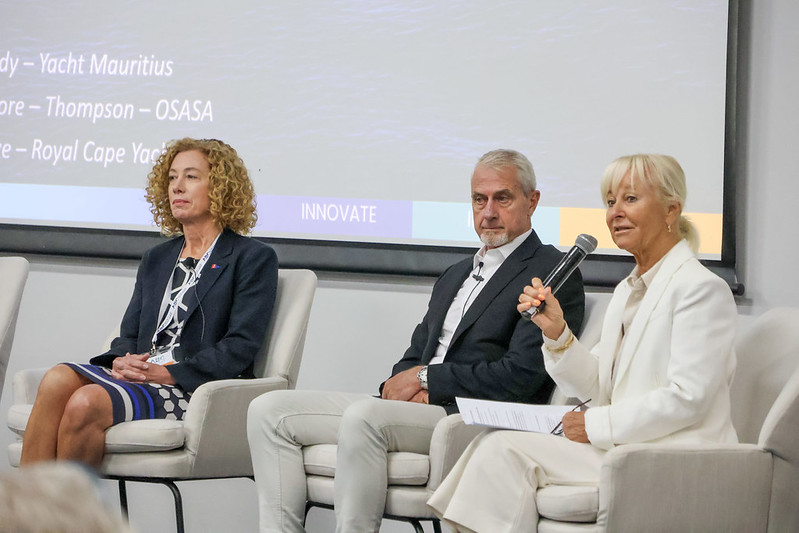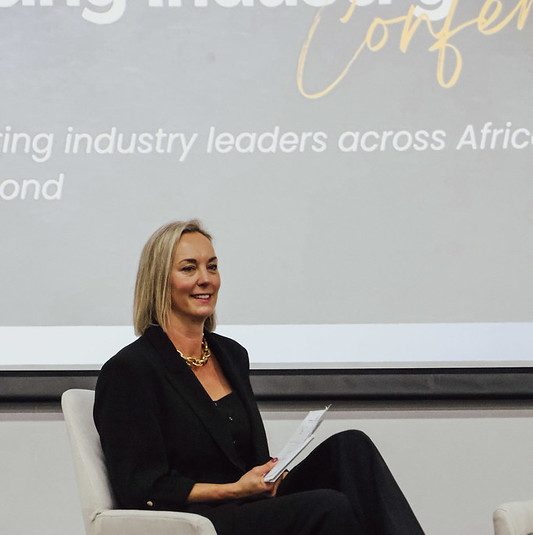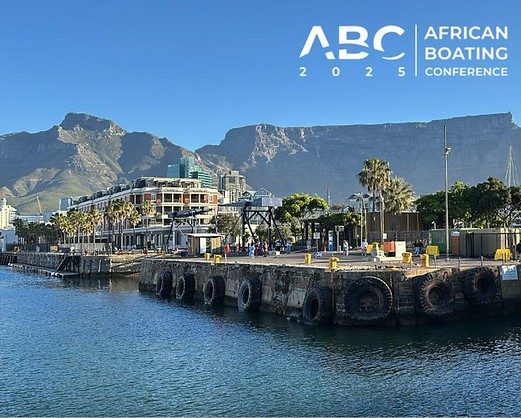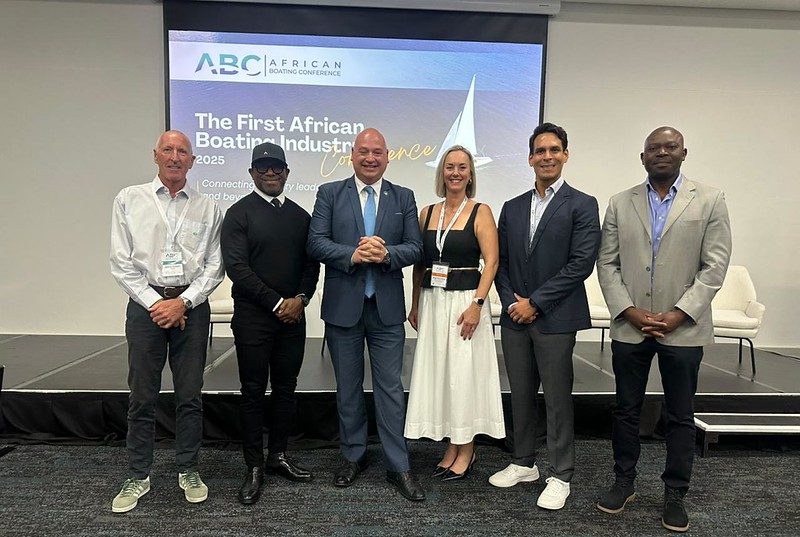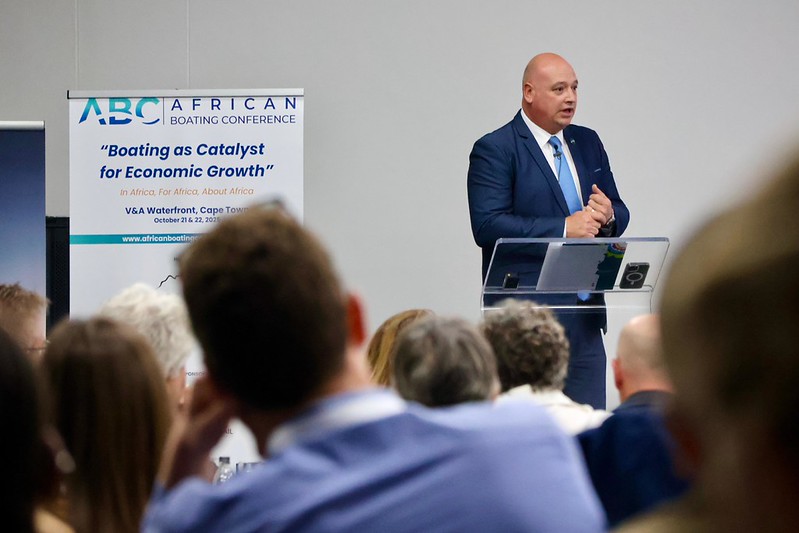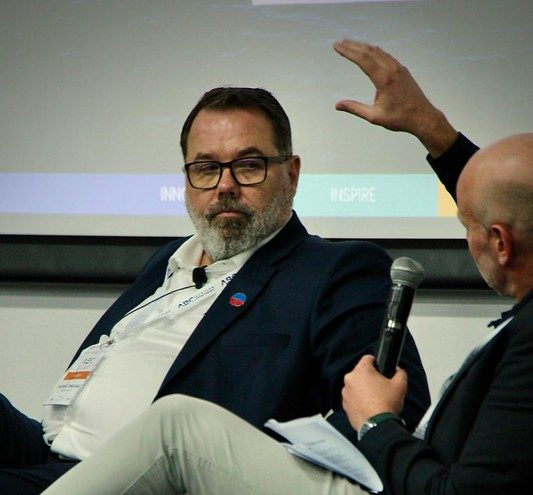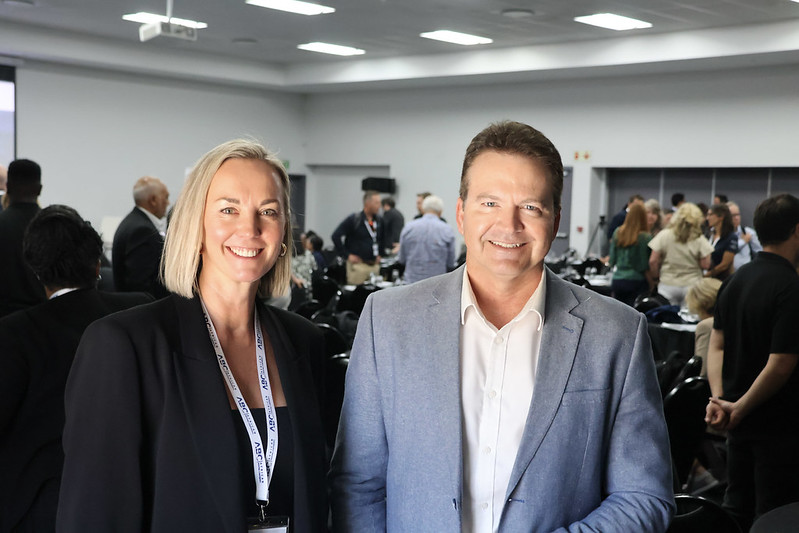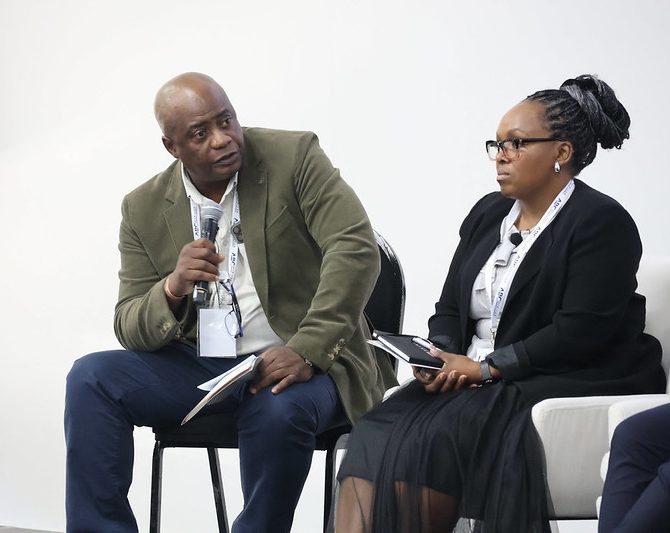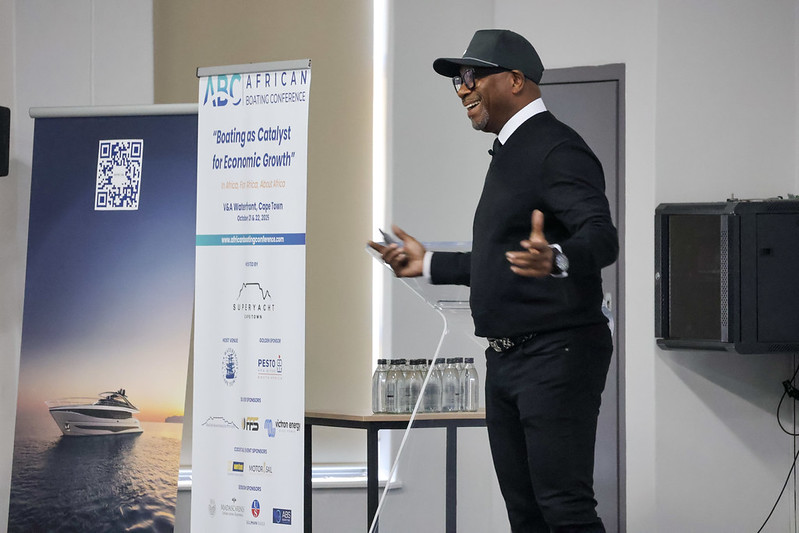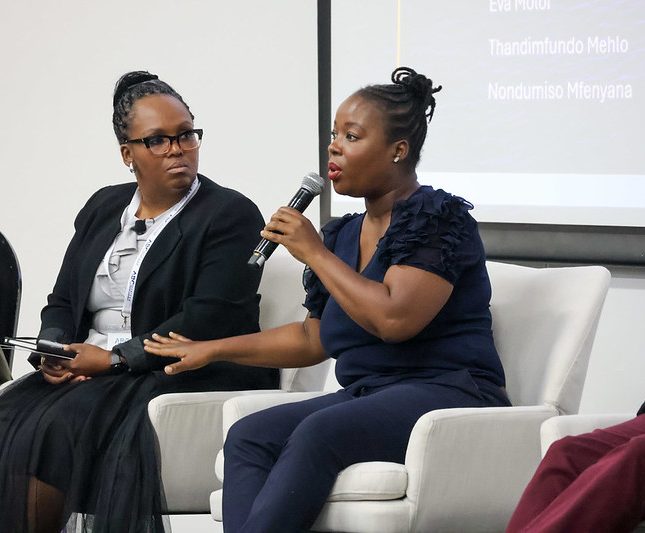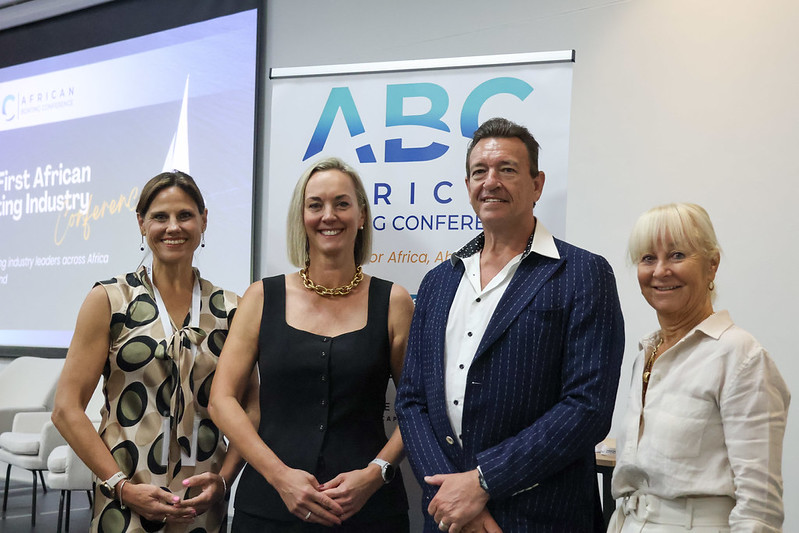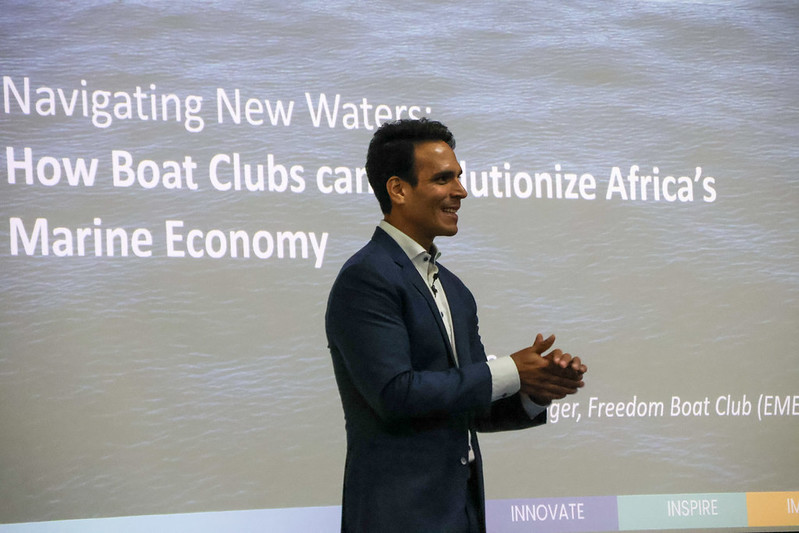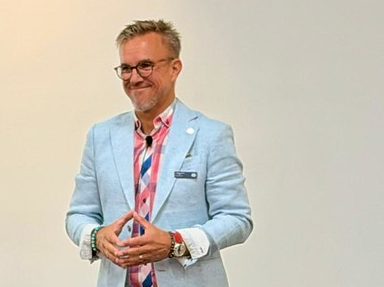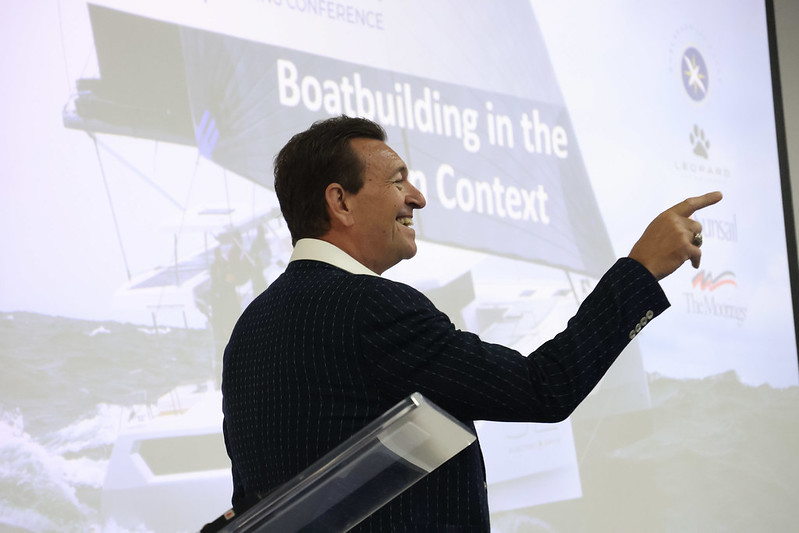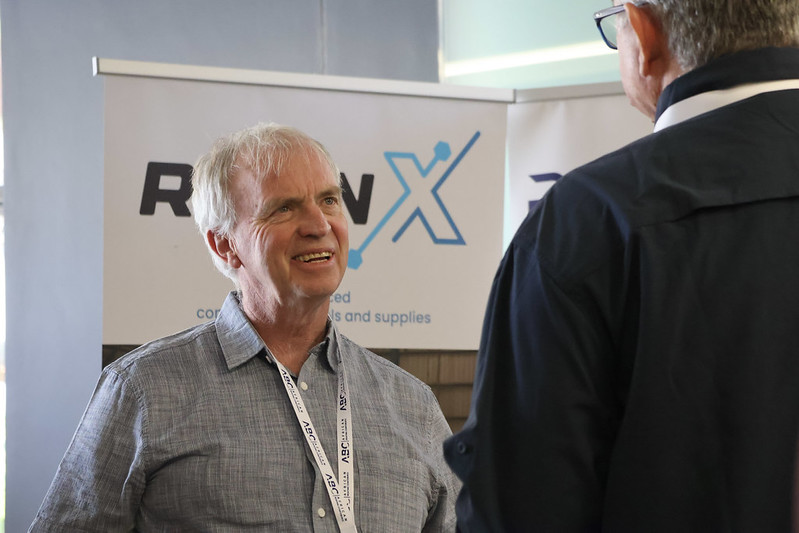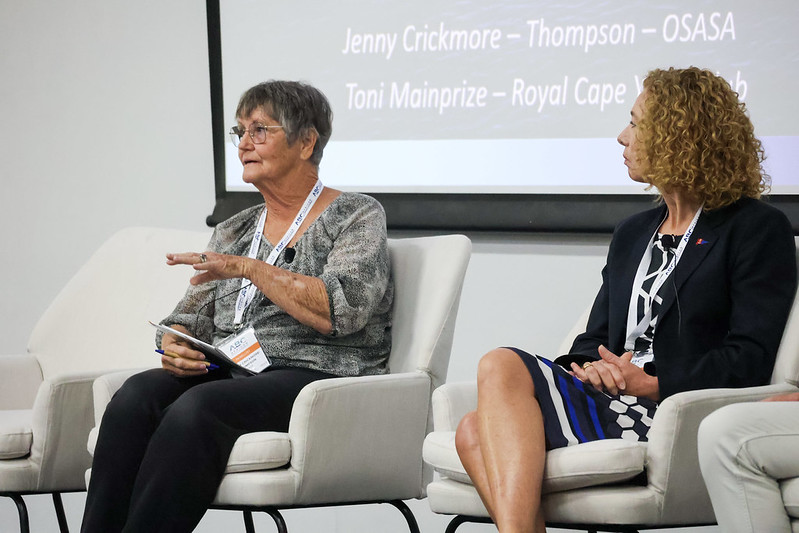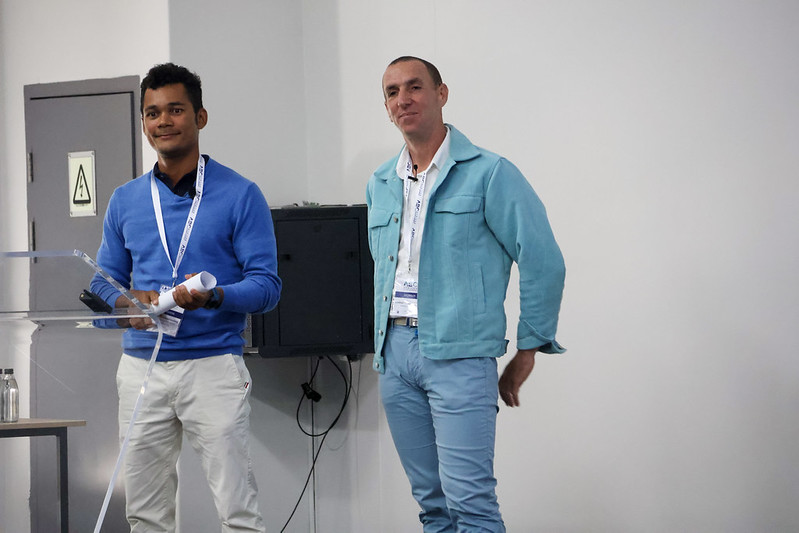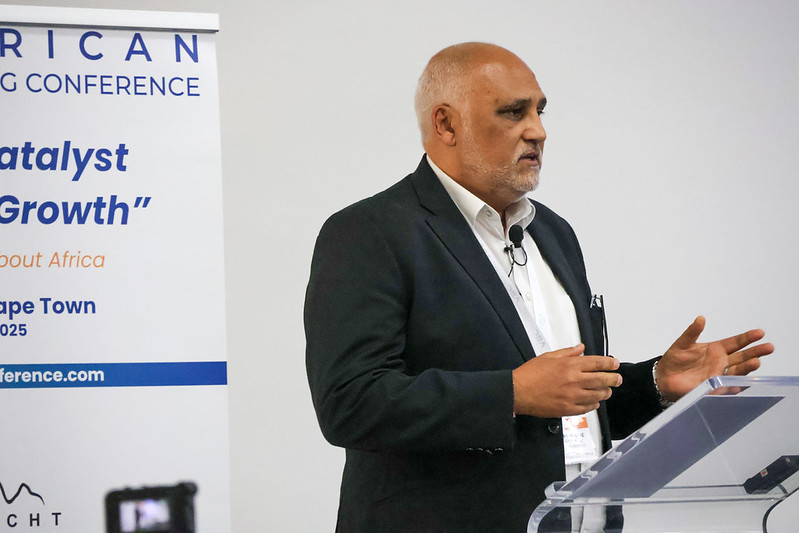The inaugural African Boating Conference proved to be a huge success. The first of its kind on the African continent, the conference showed that like-minded people, with the same goals to develop a robust marine leisure industry across borders, could achieve the unthinkable. Sail + Leisure is proud to support the first ever conference that sees cross-border collaborations in the marine leisure space.
A positive message
The African marine leisure industry’s economic contribution is growing – and despite challenges, there is significant untapped potential waiting to be unlocked.
This was the prevalent message at the inaugural two-day African Boating Conference, which brought together marine manufacturers, maritime media, and investors. The goal? To explore how to drive sustainable growth within the ocean economy across the continent.
Achievements and challenges
A main goal for conference director Veda Pretorius was to build bridges between businesses in Africa. “It is a vast continent, but the leisure marine industry is very niche. It will not be hard for us to create a strong network across the region, where businesses support one another to develop and grow their own markets, and the broader boating industry,” she said.
Veda gives S+L her take on the success of the inaugural event.
What is your overall view of the first conference?
I am very proud of what we have achieved. There were many naysayers who couldn’t understand our vision for the event, which makes it deeply satisfying to look back at the hard work and long hours—over holidays and weekends—and see that vision come to life.
Did the ABC exceed your expectations?
Absolutely. MaryAnne Edwards, who organised the African Boating Conference with me, curated the program and speakers. She was adamant that the content had to address what matters to Africa at this stage of our industry’s development. She deserves full credit for delivering a world-class lineup of speakers—the program far exceeded my expectations.
As an aside, our speakers were the easiest, most enjoyable guests to host in Cape Town! Despite being experts in their fields and sought-after internationally, they came together as a team. It was a privilege to have them here.
We also exceeded expectations with registrations. Over 200 people attended across the two days—a fantastic turnout.
Was it evident that the conference filled a much-needed gap in the boating industry?
The feedback from delegates has been outstanding. They confirmed that the topics were on-trend and relevant to our local market. The networking events and site visits were particularly popular—something we need more of in Cape Town.
Key Learnings:
- Registration timing: people leave it to the last week to register, so factor this into planning timelines.
- Networking is essential: it’s a vital component of the event. Build in sufficient time and opportunities for meaningful connections.
- Earlier promotion: we need to invest more time and effort in sharing information about the conference. Many people contacted me in the final two weeks wanting to attend, but they didn’t have time to make the necessary arrangements.
- Government engagement: we need stronger connections with government to help them understand the value of the recreational marine sector. It has real economic impact through job creation and provides long-term career pathways.
- Impact and timing: the conference has shown what’s possible. I believe it has brought hope to our local industry, which is under pressure from tariffs. It has demonstrated that our region has a place in the global marketplace and that significant business opportunities exist in Africa and across the continent.
What struck me most was the timing. For the first time, there’s genuine consensus among regional stakeholders about the opportunities in our industry and that now is the right time to develop it. There have been sporadic efforts from regional players over the years—all very haphazard with nothing aligned. This time it feels different. There’s consensus about opportunities, clarity about challenges, and a real willingness to work together.
Personal Reflections
Be bold. When you have a clear vision, stick to it and put in the hard work. Don’t be swayed by negative sentiment—just keep working toward it. Nobody else has had your exact experiences or inputs, so they might not see the opportunities you do.
Strive for excellence and work with others who share those values. Excellence is contagious—but so are mediocrity and laziness.
What will be implemented in next year’s conference?
We’ll build on what we’ve started: creating a strong, robust network of companies and individuals across Africa involved in the recreational marine industry. We’ll continue sharing established best practices and insights that can be implemented locally, and we’ll inspire people with what’s possible.
One of my key goals was to broaden the horizons and thinking of the local industry at a price point they can afford.
Immediately after the conference, we hosted a Superyacht roundtable with local and regional stakeholders and established an African Superyacht Action Group. At next year’s African Boating Conference, we’ll report on what the group has achieved.
The city’s support
Mayoral Committee Member for Economic Growth, Alderman James Vos, highlighted Cape Town’s position as the heart of South Africa’s marine manufacturing and ocean economy, stating that the city accounts for around 65% of the country’s 3 780 ship and boatbuilding jobs and exported R4.3 billion worth of locally built vessels in 2024 — 96% of which were yachts or pleasure craft. He emphasised that Cape Town’s blend of skilled craftsmanship, advanced infrastructure, and public-private collaboration has established the City as a global hub for high-quality marine production.
However, Vos cautioned that the sector faced challenges, including the 30% US tariff on South African exports and ongoing skills and supply-chain constraints. He urged diversification of export markets through opportunities such as the African Continental Free Trade Area and called for stronger alignment among investors, industry, government, and academia to address development bottlenecks. With its experienced workforce, solid infrastructure, and municipal commitment to growing the blue economy, Cape Town remains poised to steer Africa’s marine manufacturing and leisure industries toward greater global competitiveness.
Tariff strifes
The impact of US tariffs was a recurring theme from speakers. Ed Slack, Editor in Chief of International Boat Industry, gave global context to the topic, illustrating how tariffs had been a “nightmare” for EU manufacturers importing to the US. Consequently, he noted that they were increasing their focus on new markets such as the Middle East, Asia and Mexico. South African industry players such as Michael England, CEO of Ullman Sails International, agreed that the introduction of tariffs had forced companies to adjust strategy and focus on future proofing their businesses. Both were speaking on a panel discussion entitled “Africa’s Economic Outlook: Opportunities and Challenges”.
On the upside, Stephan Claasen, FNB Business Head: Western Cape, stressed that although tariffs had a large role in creating global uncertainty, a macro view of previous economic shocks showed recovery could happen faster than expected, and often provided opportunities for businesses to reorganise.
Attracting a new generation
A skills shortage and the need to grow a boating client base were two other industry challenges explored in the panel “New Horizons: Navigating Innovation, Trade & Regulations”.
Several South African companies run extensive in-house training programmes as a way of addressing skills shortages. But according to Michael England, the need for skilled labour – and a proper industry-focused training centre – was imperative for growing the sector.
The topic of skills was addressed in more detail on the panel “Upskill: Attracting & Training the Next Wave”. Nondumiso Mfenyana, Head of Skills, Education, Training and Capacity Development, SAIMI, raised the need to attract learners to the industry by showing guaranteed opportunities. Eva Moloi, the Human Capital and Transformation Manager from DAMEN, emphasised the importance of partnerships between government, educational institutions, and the industry to provide opportunities for youngsters keen to gain experience.
Another crucial ingredient to ensure industry longevity was the need to attract new boat-loving participants. “The ‘Grow Boating’ concept is vital,” said Patrick Hemp, Technical Manager, ICOMIA. “We can talk about compliance and manufacturers, but we need clients if we are going to expand … There are potential buyers but we must make sure tech and sustainability fits their profile.”
Further inspiration on this topic came from Kevin Williams, Vice President, North American Marketing, NMMA Discover Boating, who spoke on attracting a new generation of boaters.
Diverse industry skills
The conference brought together specialists across multiple facets of the marine industry. Theo Loock, CEO of Robertson and Caine, offered insights into boatbuilding in the African context, sharing how the continent’s manufacturers navigate unique challenges while capitalising on opportunities in the global charter market. Martin Baum explored the evolving yacht insurance landscape, addressing how owners can strategically manage rising premiums and climate-driven policy changes. Arturo Gutierrez, General Manager of Freedom Boat Club EMEA, presented an innovative shared-economy model that could democratise access to boating across Africa, potentially unlocking new market segments where traditional ownership models face barriers.
Anders Kurtén from Fraser Yachts provided a comprehensive analysis of the global superyacht market’s current state, examining sustainability trends that are reshaping the sector. His presentation underscored how Africa could position itself within the industry’s environmental transformation, aligning with growing client expectations for responsible yachting practices.
Tourism potential
Various speakers highlighted the potential of the continent’s marine leisure and maritime tourism sectors — but said growth was being constrained by inconsistent regulations, high operating costs, and limited government recognition. Speaking during a discussion titled “Africa’s Marine Tourism Renaissance: Charting a New Course”, representatives from South Africa and Mauritius underscored the need for greater collaboration and policy alignment to unlock the sector’s economic promise.
From inconsistent entry procedures at South African ports to inadequate marina infrastructure and restrictive commercial rates for yacht clubs, panellists agreed that stronger government support and clearer regulatory frameworks were essential. As Mauritius and South Africa both look to expand their share of the global marine tourism market, industry voices called for unified action to position Africa as a leading destination for yachting and marine leisure.
Taking the topic further with his experience of transforming the Coral Sea Marina in Australia into a superyacht destination, Paul Darrouzet gave conference attendees insight into how ‘destination marinas’ in Africa could unlock tourism potential.
Establishing a southern African superyacht route
A presentation on the first day of the conference from Cyril Mahfahana, Founder of Madagascar Yacht Services, and Christophe Caumes, Founder of Madascarenes, on the potential of Madagascar as a superyacht destination set the stage for a Day 2 panel discussion on a super yacht route for Southern Africa.
Hillary Buckman expertly moderated the superyacht route panel featuring Dave Elton from Del Shipping, Andrew Bance from Pangaea, and Don McKee from YOA, who together explored the opportunities and challenges of developing Africa as a premier superyacht destination.
Panellists highlighted Africa’s unmatched blend of culture, biodiversity, and sailing opportunities for owners. Plus the significant economic and community benefits super yacht tourism could bring the region. However, regional collaboration, marina expansion, and harmonised regulations are essential to making the route viable. Proposed stopovers include Cape Town, Mozambique, Madagascar, Reunion, Seychelles, and the Tanzanian islands.
Africa’s superyacht industry took a major step forward last week with the inaugural meeting of key African superyacht stakeholders. This brought together representatives from government, industry and tourism to shape a unified strategy for the continent’s emerging super yacht and marine tourism sector
Convened by Veda Pretorius, Director of the African Boating Conference, the roundtable marked the first coordinated effort to unlock Africa’s super yacht potential. The meeting attracted key industry and government stakeholders.
A working group will drive the strategy forward
A key outcome of the meeting was the formation of the African Superyacht Working Group. The group will lead the implementation of an African superyacht growth strategy. The African Superyacht Working Group unites leaders from government, marinas, tourism, and industry to drive coordinated policy, investment, and promotion for Africa’s super yacht sector. Its mission is to position Africa as a premier destination for high-value marine tourism, fostering inclusive growth and sustainable ocean development across the continent.
Veda Pretorius was unanimously elected as Chair of the Working Group. The Working Group will guide the development of a strategy centred on five priority areas:
- Policy and regulation: Aligning visa, charter, and tax frameworks to facilitate superyacht visits and refit activity.
- Infrastructure investment: Expanding marina and refit capacity across key African and Indian Ocean hubs.
- Marketing and branding: Positioning Africa as a distinctive, high-quality cruising destination on the global map.
- Skills development: Building training and employment pathways in yacht services, engineering, and tourism.
- Sustainability and inclusion: Ensuring local enterprise participation, (broad economic benefit) and environmental stewardship remain core to growth.
A call for collaboration
“There’s never been a more opportune time to align Africa’s marine and tourism sectors around a shared vision,” said Andre Blaine, Head of Marine and Industrial at the V&A Waterfront. “We already have the natural assets and technical capability — what we need now is regulatory alignment and regional coordination to welcome more superyachts, extend their stays, and maximise the benefits for local communities.”
Bruce Tedder, Chair of Blue Cape, emphasised the economic value of building a structured approach: “Superyachts are high-value catalysts. Every vessel that stops here supports dozens of local suppliers — from engineers to chefs, mechanics, and crew. By creating a clear policy and marketing framework, we can turn what is now an occasional visit into a consistent economic driver for Cape Town and the region.”
Representing the Indian Ocean perspective, Christophe Caume, Managing Director of Madascarenes and Cyril Mahafahana, Madagascar Yacht Services, were united in their comment; “Our region is already part of the global cruising circuit, but we need to make it easier for vessels to come and stay. Simplified customs and joint marketing between destinations like Seychelles, Madagascar, Mauritius, and South Africa will allow Africa to offer a truly world-class yachting experience.”
Next steps
The Working Group will oversee the drafting of an African Superyacht Action Agenda. This will outline clear steps for infrastructure expansion, policy reform, and international promotion. The agenda will be shared through the Superyacht Cape Town network, ensuring broad regional participation and visibility.

